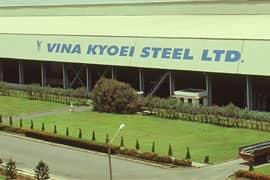Intermediate Metal Conduit (IMC) is a type of steel conduit introduced in the 1970s as a lighter and more economical alternative to Rigid Steel Conduit (RSC). It provides similar protection for electrical wiring but is approximately one-third lighter, making it easier to handle and install.
Key Characteristics:
- Wall Thickness: IMC has a thinner wall compared to RSC but still offers strong mechanical protection.
- Weight: It is about one-third lighter than RSC, providing an advantage in terms of handling and installation efficiency.
- Material: IMC is coated with galvanized steel on both the interior and exterior to resist corrosion.
- Couplings: IMC is supplied with either straight-tapped or integral couplings.
Applications and Standards:
- Interchangeability: IMC is fully interchangeable with RSC. Both types of conduit have the same threading (3/4-inch per foot taper), use identical couplings and fittings, and share the same support and installation requirements.
- Compliance: IMC conforms to Article 342 of the National Electrical Code (NEC), as well as UL 1242 and ANSI C80.6 standards, ensuring it meets rigorous safety and performance criteria.
Common Uses:
IMC is suitable for both indoor and outdoor applications where mechanical protection and corrosion resistance are necessary but a lighter-weight conduit is preferred. It is commonly used in environments that require a durable yet cost-effective raceway solution.
Summary:
IMC conduit provides a robust and cost-effective alternative to RSC, offering substantial protection with reduced weight, making it an excellent choice for various electrical raceway systems.






























































































Follow Us